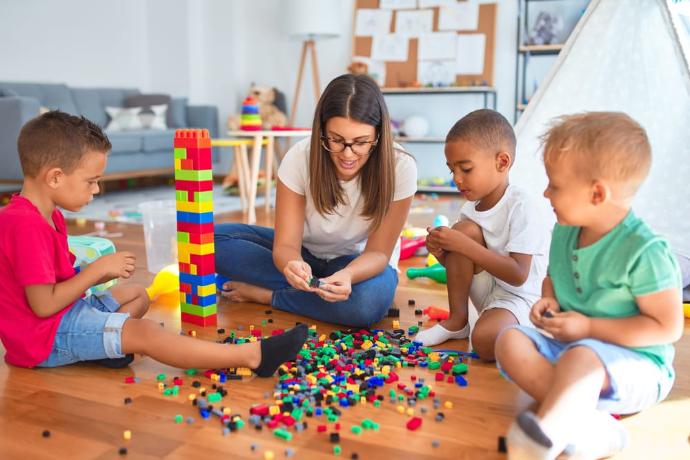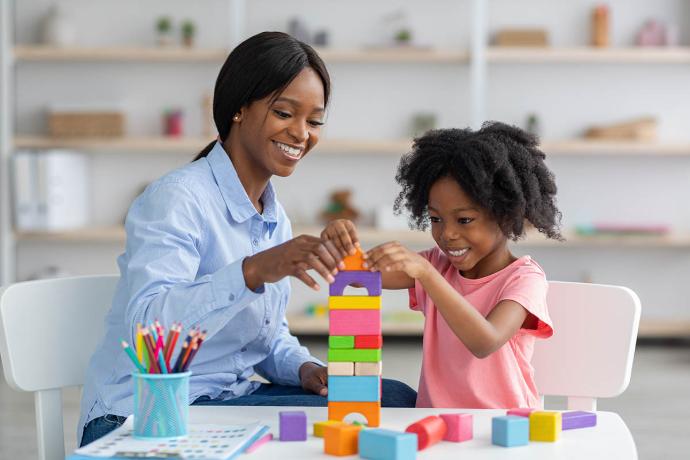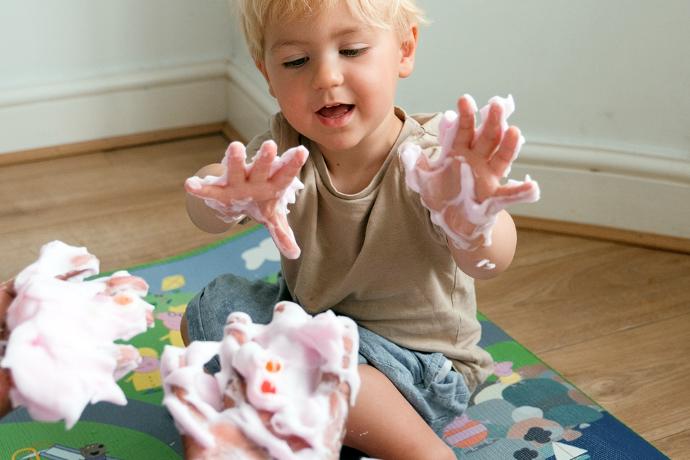At Nafs Health, we believe that emotional well-being is just as important as physical health. One of the most effective ways to support children in navigating their emotions, building coping skills, and overcoming challenges is through play therapy. This therapeutic approach provides a safe, supportive environment for children to express themselves, explore difficult emotions, and develop crucial skills that will help them throughout their lives
What is Play Therapy?
Play therapy is a specialised form of therapy designed to help children communicate their feelings, thoughts, and experiences through play rather than words. Since children often lack the vocabulary to express complex emotions or traumatic events, play therapy allows them to use toys, games, and creative activities to express what they might not be able to say directly.
At Nafs Health, our licensed play therapists create a safe and comfortable space where children can explore their feelings, build self-esteem, and learn to manage difficult emotions like anxiety, anger, or sadness. This process encourages emotional growth and helps children process difficult experiences at their own pace.
How Does Play Therapy Work?
In play therapy, children are encouraged to play with toys, art materials, or other creative tools that facilitate self-expression. During sessions, a skilled therapist closely observes the child’s behaviour and interactions with the materials. These play sessions are not just for fun—they’re powerful therapeutic tools that allow the therapist to understand the child’s inner world.
Through this process, children can work through emotions like fear, frustration, or sadness in a way that feels natural to them. For example, a child might act out a scenario with dolls or figurines to represent something they’re struggling with, such as a recent move, bullying, or family changes.
Who Can Benefit from Play Therapy?
Play therapy is ideal for children aged 3 to 12 years old, but it can benefit children of any age. If your child is having difficulty communicating, managing their emotions, or adjusting to changes in their life, they may benefit from this approach. Common reasons families seek play therapy at Nafs Health include:
· Emotional difficulties: Anxiety, depression, or stress
· Behavioural issues: Aggression, defiance, or social difficulties
· Trauma or loss: Coping with grief, separation, or family changes
· Developmental challenges: Difficulty adjusting to school or social settings
Even if you’re unsure whether play therapy is right for your child, our experienced therapists at Nafs Health are happy to discuss your concerns and guide you in making the best choice for your child’s well-being.
What Role Do Parents Play in Play Therapy?
Parents play an important role in the success of play therapy, even though the therapy itself happens in the playroom. At Nafs Health, we encourage parents to stay involved in their child’s healing journey by:
· Engaging in the process: We often invite parents to share observations or concerns, as this information can help us tailor the therapy to meet the child’s needs.
· Supporting at home: We provide strategies and tools that parents can use at home to reinforce the work being done in therapy.
· Creating a supportive environment: The home environment is crucial to the child’s emotional growth, and our therapists help parents create a nurturing atmosphere where the child feels safe to express themselves.
Parents are encouraged to attend regular check-ins with the therapist to monitor progress and discuss any adjustments needed.
The Impact of Play Therapy
The results of play therapy are often transformative, helping children develop healthy coping mechanisms and stronger emotional resilience. Here at Nafs Health, we have witnessed firsthand the positive changes children experience as they learn to process their emotions through play.
One of the most powerful aspects of play therapy is that it allows children to reclaim control over their emotions and experiences. They learn to express themselves confidently, resolve conflicts, and build a sense of self-worth. Over time, play therapy fosters deeper connections with family, peers, and the world around them.
Why Choose Nafs Health?
At Nafs Health, we’re proud to offer play therapy as part of our comprehensive mental health services. Our team of highly trained and compassionate therapists is dedicated to providing personalised care that meets the unique needs of every child. We understand the challenges children face in today’s world, and we are here to offer the support and guidance needed for them to thrive emotionally.
If you think your child could benefit from play therapy, we invite you to contact us today to learn more about how we can support your family’s emotional well-being.
Contact Us:
If you have questions or would like to schedule an appointment for play therapy, reach out to Nafs Health today. We’re here to support your child’s journey toward emotional health and resilience.


